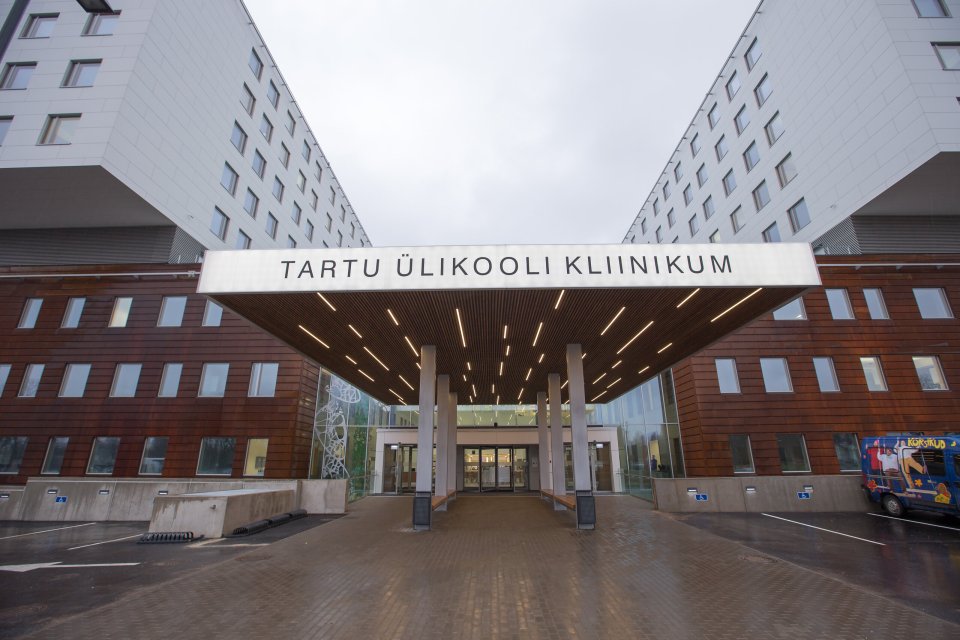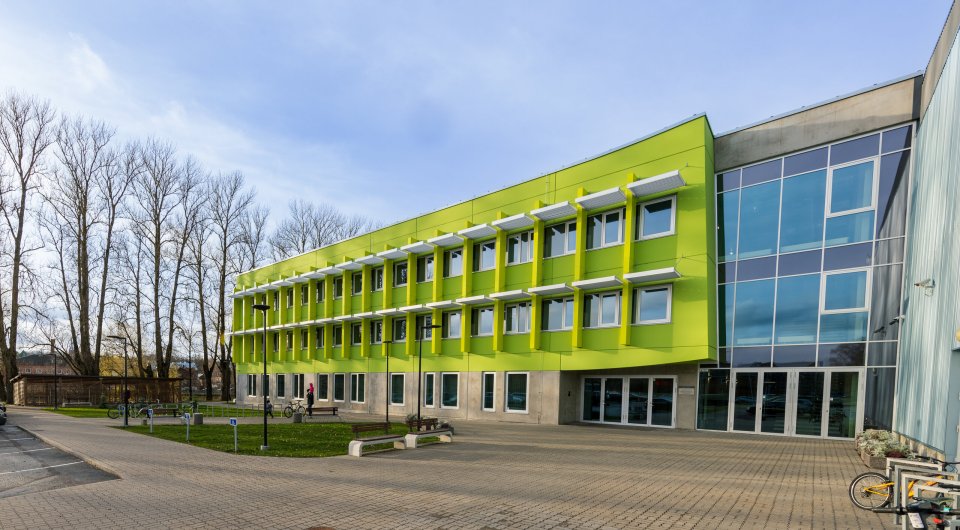Institutes
Education in our six institutes prepares outstanding leaders in the field of health care and medicine. Our alumni make up 99% of Estonian doctors, dentists and pharmacists and the majority of renowned exercise and sport scientists, physiotherapists and sports coaches.
The aim of the institute is to perform biomedical research by studying basic concepts and by translating these results into clinical practice. The institute is responsible for the preclinical teaching curricula for the students of medicine, dentistry and pharmacy, and participates in residency training after medical studies as well as in master and doctoral degree studies.
The departments at the institute have diverse research interests with focus on molecular medicine that studies the causes and mechanisms of diseases and applies this knowledge in their prevention, diagnostics and treatment. Institute implement cross-disciplinary scientific and innovative projects in the sphere of translational biomedicine.
The institute is oriented toward international high quality research with outcomes in innovative solutions for healthcare and with strong basis for medical education. For its teaching and research tasks, the institute works together with partner institutes at the university, Tartu University Hospital, Estonian Genome Center, students, healthcare specialists and other medical organizations.
Thanks to the high quality research at the Institute, the University of Tartu is among the 1% of the world’s most influential research institutions in the field of molecular biology and genetics (ISI Web of Science).

Biomedicum, Ravila 19
The Institute of Clinical Medicine is responsible for teaching, research and development activities in clinical disciplines. Most of the clinical subjects of the medical curricula are taught at the institute and it is the main coordinator of the residency training, clinical doctorate (PhD) studies and continuous medical education at the University of Tartu and in Estonia. Clinical research conducted by medical students in Tartu builds a strong footing for international prominence as a doctor or researcher.
Education and research are undertaken in close collaboration with the Tartu University Hospital, which is the largest provider of medical care in Estonia.
Most of the institute’s academic staff, including 20 professors and 31 asscociate professors, are clinicians, who hold different positions at the Tartu University Hospital. In the beginning of year 2020 the institute opens the Simulation Centre, where students, residents, nurses and doctors can practice their clinical skills using phantoms and simulators. The institute is also developing the University of Tartu to a well-networked Patient Safety Research Center in Estonia.
Thanks to the high quality research, the University of Tartu belongs to the 1% of the world’s most influential research institutions in the field of clinical medicine (ISI Web of Science). To ensure high-quality clinical research, the newest department of the institute – the Clinical Research Centre – advises scientists in filling different applications, writing grant proposals and managing research projects. The institute’s academic staff is leading approx. 30 different scientific projects.
As an academic knowledge center in clinical medicine, the institute has representation in advisory bodies in the Ministry of Social Affairs, Estonian Health Insurance Fund, and National Health Board. The representatives of the institute also belong to the national councils of clinical guidelines and health care quality indicators.

L. Puusepa 8
The Institute of Dentistry of the University of Tartu is the only dental education institution in Estonia. The alumni of the Institute are well recognized in Estonia but also abroad.
The Institute is in charge of the theoretical and simulation teaching of future dentists. The study programmes are in line with international standards and modern teaching technologies. It is important to understand, that dentistry is not just about repairing one tooth, it is necessary to treat the patient as a whole. The specialty is divided into four major areas: dental care, surgery, prosthetics and dental disease prevention, pediatric dentistry, orthodontics.
Institute works in close co-operation with the Tartu University Hospital Stomatology Clinic which is the main place of practice for dentistry students. Most of the researchers and teaching staff are practicing dentists, orthodontists or face and jaw surgeons.
The Institute of Dentistry is known for its high-quality research in the fields of oral health. Most of the studies are focused on prevention of oral diseases, including different age groups in Estonian population.
In Estonia the dental treatment is free of charge for children under the age of 19. So one of the mission of the Institute is to raise awareness of importance of oral health and to encourage children and parents to make regular visits to the dentist. From this perspective research on children oral health is one of the priority.
The institute works in close collaboration with Estonian Dental Association and Estonian Health Insurance Fund.
L. Puusepa 1a
The mission of the institute is to provide education, research and development, and to provide necessary services to the community in the fields of family medicine, public health and nursing. Members of the Institute are oriented to find solutions for real-life problems in public health and primary healthcare. There are strong ties between the Institute and government through policy analysis.
The Institute includes The Centre for Health Technology Assessment. The results of the Centre’s research is used by the Estonian Health Insurance Fund to make health care policy decisions about adding new diagnostic and treatment options to the list of health care services, and by the Ministry of Social Affairs to make decisions on the reimbursement of pharmaceuticals and on public health interventions.
Main research areas at the Institute of Family Medicine and Public Health are risk-taking health related behaviour, risk factors of noncommunicable and communicable (HIV) diseases; environmental and occupational health risks and related intervention strategies; health technology assessment and medicine and public health.

Biomedicum, Ravila 19
Institute of Pharmacy is a leading higher-education teaching unit and research center in Pharmacy in Estonia. The mission of Institute is to advance the pharmaceutical sciences by conducting a high-standard research work and research-based education of MSc(Pharm) and PhD(Pharm) students.
The education and research work in Pharmacy at the University of Tartu combines a broad range of scientific disciplines that are critical to drug discovery, physical materials research (drugs and excipients), pharmaceutical formulation development, manufacturing process research and drug therapy.
The current research topic areas include (but are not limited to) the preparation of bioactive substances, chemical drug analysis, physical pharmacy, molecular-based pharmaceutical technology (with a special focus on oral solid dosage forms and topical active-loaded wound preparations), modern manufacturing technologies (electrospinning and 3D printing), nanotechnology-based drug delivery systems and their biological effects and safety on humans, and development of medication use review services and safe use of medicines by older patients.
Today, the Institute of Pharmacy has modern equipment and facilities for studies, innovative and accessible laboratories, and highly graded teachers, researchers and professors. For continuous improving the teaching and research activities, the institute collaborates with many domestic/international public and private partners from a wide range of scientific disciplines. The study curriculum in Pharmacy is organized in competency-based modules to support professional development. The most recent courses implemented in the study curriculum are for example the lecture courses in Clinical pharmacy, Industrial pharmacy, Pharmaceutical nanotechnology and Pharmaceutical entrepreneurship. The number of courses given in English language is also steadily increasing.
The University of Tartu was ranked in the position of 101-150 by the Shanghai ARWU ranking in Pharmacy & Pharmaceutical sciences in 2019 (among 500 universities), and in the position of 251-300 by the QS University Rankings in Pharmacy & Pharmacology University Subjects in 2018.

Nooruse 1
The Institute of Sport Sciences and Physiotherapy has become a significant centre of sports science in Estonia and Europe. The teaching and research of the institute is incredibly diverse, ranging from the subtle aspects of sports psychology to the molecular mechanisms of muscle contraction.
An important direction of the institute is research related to the development of physical working capacity. In order to ensure the better preparation of athletes and provide solutions to increase the efficiency of athletic training, several sports federations also cooperate in the field of training and testing.
The institute holds a unique climate laboratory, which aims to study the resistance and adaptation of the human body to different climatic conditions, like freezing temperatures or desert heat. There is also a Move Lab that focuses on the mobility and physical activity of children in school.
Students have access to the university stadium and the modern sports and athletic halls of the University of Tartu Academic Sports Club. Physiotherapy students can develop practical skills at Tartu University Hospital and other health care institutions throughout Estonia.

Ujula 4



